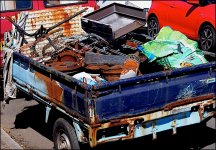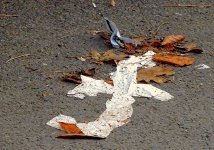I don't think that there should be some sort of arbitrary difficulty barrier that determines a photograph is worthwhile or not. Some photographs will be hard to achieve by their nature, wildlife for example, because they require planning, skill, equipment, and even luck for the most part. But the fact that someone might spend months of effort in difficult conditions in order to capture a picture of a rare bird or something doesn't necessarily mean that it will be a "good" photograph. Even if the result is technically perfect, with great composition. and amazing light, the subjectivity of the individual viewer will still determine its worth.
For me a photograph could have been years in the making or a complete accident and it makes no difference as to whether I'll prefer one, both, or neither. I take them at face value, not based on what it took to achieve them.
I rarely plan any photos I make (beyond perhaps travelling to a location). I just go somewhere and I photograph things I see. As I wander around places I will spot pictures - something in my head will kinda flash up and say "there's a photo!". It's based purely on what I like, and very rarely with any audience in mind other than myself, and it happens whether I have a camera with me or not (sometimes frustratingly...). I'll basically photograph anything if it looks like it will make a picture that I will find interesting. The Garry Winogrand quote "I photograph to find out what something will look like photographed" is pretty much what I do. There are always photos to be found, even in the most mundane of locations, it's just a matter of seeing them.
I look at other photographers work often - it's an amazing source of inspiration - and I'll find pictures there that I like and embrace them into my style - but it's very much about inspiration, and never about duplication. I might seek to make similar pictures, but I don't want to make the same pictures.





